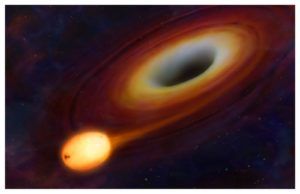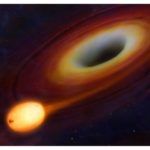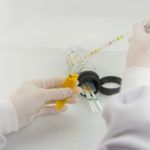The ANGRAM project studied a new method for more efficiently detecting antimatter in order to help resolve questions like why there is more matter than antimatter in the universe and how antimatter falls.
Antimatter fuels unanswered questions about the universe, which EU project ANGRAM set out to probe, trialling a new method for detecting antimatter, and making progress on the question of how antimatter falls.
Results
Research fellow Angela Gligorova, with support from the Marie Skłodowska-Curie programme, simulated – and detected – antiprotons, to study their interaction with ordinary matter. Gligorova is analysing and comparing the simulations and hopes to publish her results in the next few months. “We carried out a study by annihilating antiprotons in different materials in order to validate existing physics models and to identify their weaknesses as well as methods for improvements,” says Gligorova.
ANGRAM’s preliminary results show that none of the current physics models describe the interaction between matter and antimatter accurately
Supervised by Eberhard Widmann, Director of the Stefan Meyer Institute for Subatomic Physics at the Austrian Academy of Sciences, Gligorova secured invaluable time at CERN, the European Organisation for Nuclear Research, to use the Antiproton Decelerator there which produces the antiprotons necessary for the formation of antihydrogen. But the fellow wasn’t able to complete the final goal, which was to carry out a 30 % measurement of the gravitational acceleration for antihydrogen, because the antiproton beam at CERN is in high demand and only available for a limited amount of time.
The new antihydrogen formation method also took longer than foreseen. “Such an experimental result is important because it might reveal the reason why there is so much more matter than antimatter in the universe, even though in the beginning, in the Big Bang, they should have been created in equal amounts.”
Gligorova’s work in a challenging field has already inspired young female scientists after she made a video for International Women’s Day.
Setbacks
The project trialled a moiré deflectometer to simulate the fall of antihydrogen in Earth’s gravitational field: a system made of two or three parallel gratings, coupled to a detector. Gligorova discovered that the interactions between the antihydrogen atoms passing close to the gratings and the atoms from the gratings produced an effect that was misleading when trying to measure the gravitational force.
Gligorova concluded that the tests required an even more sophisticated deflectometer, made of light instead of matter, but that instrument exceeded the resources available.
More information
Video for International Women’s Day.
R+I Section





Leave a Reply